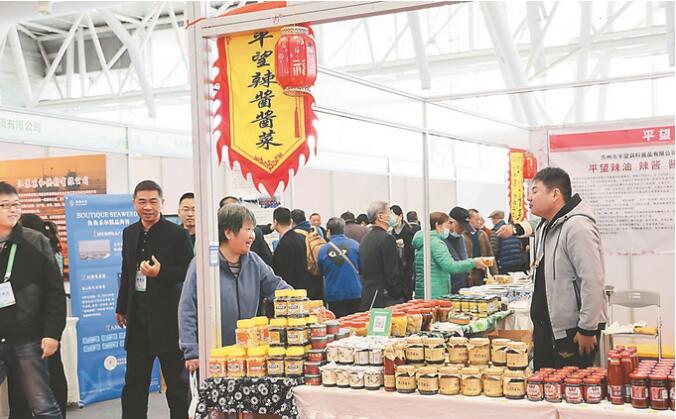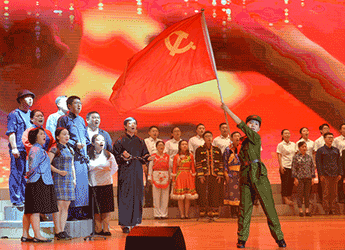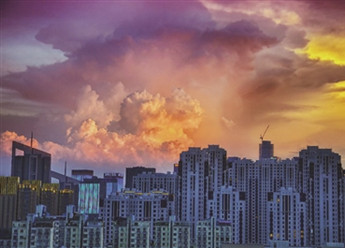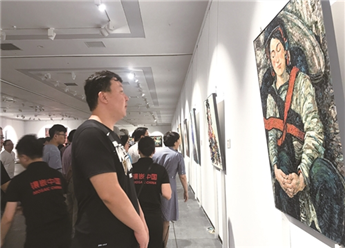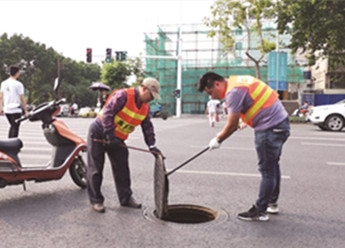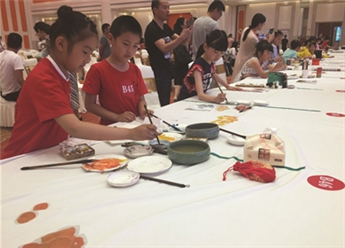令我自豪的过去15年

在北京人民大会堂获得2003年度中国政府颁发的“友谊奖”
作者简介:布铭邦,德国籍,扬子巴斯夫有限责任公司前总裁。1996年至今,在南京工作生活累计达15年之久。2002年度被授予江苏省“友谊奖”。2003年度被授予中国政府“友谊奖”,这是中国政府授予在华外国人士的最高荣誉。同年,还被南京市政府授予“南京市荣誉市民”称号。
1975年,我在德国哥廷根大学取得物理化学博士学位,然后担任助理教授至1976年8月,随后我加入世界一流的化工企业巴斯夫。直到2011年为止,我在这家公司里任过多种职务。
1983年,在该公司的聚氨酯部门任职期间,我与中国取得了联系。作为一个异氰酸酯(聚氨酯原料)专家, 1984年我与台湾方面进行了关于获批生产甲苯二异氰酸酯的商谈,但没取得成果。1984和1985年,我转而与大陆方面进行洽谈。在这两年里,我来访6次,总共3个礼拜的时间,我考察了北京、上海、福州和兰州。经过艰难的磋商,我们在兰州附近建立了甲苯二异氰酸酯工厂。时至今日,这个项目仍在为中国的工业进步做出贡献。这个项目也加深了我对中国对外开放政策的印象,作为这个伟大的发展历程中的参与者,我也很自豪。

2003年陪同时任德国总统约翰内斯·劳在宁参观扬子石化-巴斯夫有限责任公司
1996年春,巴斯夫和中石化签署协议,计划在南京合资设立工厂,我当时担任巴斯夫公司发展部的副主任。令我惊喜的是,经过深思熟虑,巴斯夫集团的领导层任命我为这个合资厂的总经理。
这个任命对于我来说不仅是嘉奖,更是一个挑战,因为这个合资工厂是巴斯夫最大的投资项目。之前我也在海外生活过,比如比利时和美国,但是我将面对一个完全不同的生活环境。
1996年,我和我的比利时国籍的夫人从德国到台北学习中文,四个月后,由于合作的谈判到了最后阶段,我们不得不终止汉语学习,转而带领巴斯夫的技术团队与财务和保障团队配合,继续谈判。所有的谈判工作,包括可行性报告的编制共持续了三年零九个月。我在南京一直住到1997年的3月,熟悉谈判协议的所有细节,同时我也适应了当地的生活。但是由于工作繁忙,我没有时间学习中文,汉语水平仍然刚刚入门。
1997年的南京市是一个满目青翠的美丽城市,与现在相比,发展的水平还比较低。到现在我住在南京已有15年之久。我亲眼目睹了巨大的变化。公路、地铁、高铁站、机场、时尚住宅、学校、新建的长江大桥、现代工业、体育设施如雨后春笋纷纷涌现。
在这里,我有幸认识了许多中国朋友,有政府各级部门的官员,也有扬子石化的合作伙伴,我同他们发展了友谊。同时我发现在这里,外籍人士的人数和交往范围在不断扩大。
我的主要工作是忙于IPS项目的实施,我的夫人则关注巴斯夫外籍员工的家庭生活,特别关注南京国际学校的发展。
2000年6月,朱镕基总理访问德国柏林,与时任德国总理施罗德签署了29亿美元的石油化工项目投资协议。两国的领导人也大力推进了项目的进程。
2000年12月,扬子巴斯夫有限公司成立,一共有来自28个国家的15000人经过4年时间的努力,完成了工厂的建设。
2005年上半年工厂投产后取得了巨大的经济效益,至今投资已达50亿美元。
2003年3月,我被当时的南京市市长罗志军授予“南京市荣誉市民”的称号,这使我倍感荣幸,这个称号不仅仅是对于我个人,更是对我的工作和我广大同事的褒奖,也更加激励我要为中国、为江苏、为南京的发展做出更大的贡献。合资公司不仅要创造更多的就业机会和更多的税收,更要达成环境友好的目标,并要积极地参与社会活动和慈善事业。总之,我们就是要汇聚东西方之力为南京的可持续发展做出贡献。
2003年2月,我夫人过世,这对我是个沉重的打击。我只能以更勤奋的努力和更大的公司成就来告慰她。我很幸运,我遇见了一个南京姑娘,并于2007年11月结婚。通过这次的婚姻,我了解了她的家庭和朋友,接触了一个普通中国家庭的日常生活。
现在我夫人和我生活在德国,但是我们经常来南京看看朋友,看看南京的发展和变化。南京市不仅仅注重快速发展,也大力弘扬和保留文化遗产,南京这个城市是了解中国历史和文化的很好的切入点。现代化工业与绿色人居环境交相辉映。我发现她是一个经济发展、环境保护、满足社会需求,实现可持续发展的范例。我也很自豪在过去的15年,我曾为此做出过贡献。
作者:布铭邦(德国)
译文
MyPast15ProundYearsinNanjing
-----TheStoryofBernd BlumenbergfromGermany
After receiving a doctorate in Physical Chemistry in 1975 from the University of Goettingen in Germany and spending some time as assistant professor in August 1976 I joined BASF, the leading chemical company worldwide and worked for this great company in various functions until end of 2011.
My assignment in the polyurethane division gave me the opportunity to come into contact with China as early as 1983.As expert for isocyanate (polyurethane raw material)I conducted, however unsuccessfully, licensing negotiations for TDI in Taiwan. In 1984 and 1985 this licensing business led to my first visits of mainland China. In total I visited China six times for about 3 weeks each in these two years. Besides Beijing and Shanghai I visited cities like Fuzhou and Lanzhou. Difficult but finally successful negotiations led to the construction of a TDI-plant in Bayin, near Lanzhou, which until today contributed to the industrial development of China. This licensing business left me with a first impression of the opening up policy of China and a certain satisfaction of being a witness and contributor to the devopment of this great nation.
In spring of 1996 BASF and SINOPEC signed a letter of intent to establish a joint venture for an integrated petrochemical site in Nanjing. At that time I was leading as a Senior Vice President the process development department of BASF. Thus I was very astonished when the respective member of the board of executive directors of BASF offered to me the job of the General Manager for the IPS(integrated petrochemical site)-project with the target in case of successful negotiations to become as President the Managing Director of the BASF-SINOPEC joint venture.
I considered this offer as a great honor but also as very challenging, because it would be the largest investment in BASF's long history. Additionally it was an assignment in a country in which life seemed to be more difficult than in Belgium or USA, the location of my former delegations.
In November 1996 I left Germany to Taipei to study the Chinese language together with my wife. I still regret that we had to stop the language studies after 4 months, because the joint venture negotiations became more and more difficult and I had to lead all technical teams of BASF and join other teams like finance or logistics. These negotiations and the preparation of the joint feasibility study report took another 3 years and 9 months. On the positive side I learnt all the details of all contracts to be concluded and living in Nanjing since March 1997 gave me some insides of the local conditions. Unfortunately not much time was left to study the language, so I remained at rather basic level.
Nanjing in 1997 turned out to be beautiful and green city, but compared to today the development level was rather low. Since I was a citizen of Nanjing for exactly 15 years, I think I can consider myself as witness of a tremendously fast development. Roads, tunnels, railway stations, an international airport, modern living quarters, schools, bridges across the Yangzi River, modern industries, sports facilities, etc. were built mostly in record time.
I had the opportunity to become acquainted with many Chinese people being it members of the authorities at various levels or of our partner company YPC. In some cases real friendship was developed. Also the international community grew considerably over the years.
While I was primarily busy with the implementation of the IPS-project, my wife took care of the BASF delegates and their families. Especially the development of the Nanjing International School was of highest importance.
The joint venture contract for the establishment of a petrochemical site with an initial investment of 2.9 Bio.US-Dollars was signed in June 2000 in the office of the German Chancellor Gerhard Schroeder in Berlin at the occasion of the visit of Premier Zhu Rongji to Germany. Both statesmen not only witnessed the signature under the joint venture contract, but also gave tremendous support to the development of the project.
In December 2000 the joint venture company BASF-YPC Company Limited could be established. Engineering and construction of the large petrochemical site kept many people engaged for the next 4 years. Directly involved were 15000 people of 28 nations. Thus one can imagine that was plenty of interaction with Nanjing's authorities and business world.
After successful startup in the first half of 2005,the joint venture was commercially very successful and has been developed further with a total investment of now more than 5 Bio.US-Dollars.
As early as May 2002 I was awarded the title of Honorary Citizen of Nanjing by the mayor of Nanjing Luo Zhijun. On one hand this honor made me very proud personally, but I felt it was also an award received for the work and contributions of many colleagues. This award also resulted in a strong feeling to be obliged to contribute even more to the development of Nanjing, Jiangsu and China. These contributions were not only the generation of jobs and significant tax payments by the joint venture, but also by running a chemical company without harming the environment and contributing to the society by social activities like sponsoring and donations but also by lecturing at universities. In summary our joint venture company combining the strengths of east and west contributes significantly to the sustainable development of Nanjing.
On a personal level I experienced a severe setback, my wife, who was an enthusiastic citizen of Nanjing, passed away in February of 2003.This very sad event was another incentive to continue to work hard for the success of our company and of her beloved Nanjing. I was so lucky to meet my wife, a real Nanjingnese. We married in November 2007 and through this marriage I was so lucky also to become acquainted with her family and friends, hence ordinary Chinese people and their daily life.
Today my wife and I live in Germany, but through regular visits we keep up with many friends in Nanjing and of course follow the further development of Nanjing, Jiangsu and China. Nanjing is certainly a fast developing Chinese city, but this city has not only raised the living standard of its citizens, but has also preserved many cultural heritages. It is really place to dive into Chinese history and culture. Modern construction for industries and living quarters has not destroyed the green city. I think Nanjing has found a balance between commercial success, maintaining an environment worthwhile to live in and social needs of the population for true sustainable development. I am still very proud to have contributed during my 15 years in Nanjing to this development.






